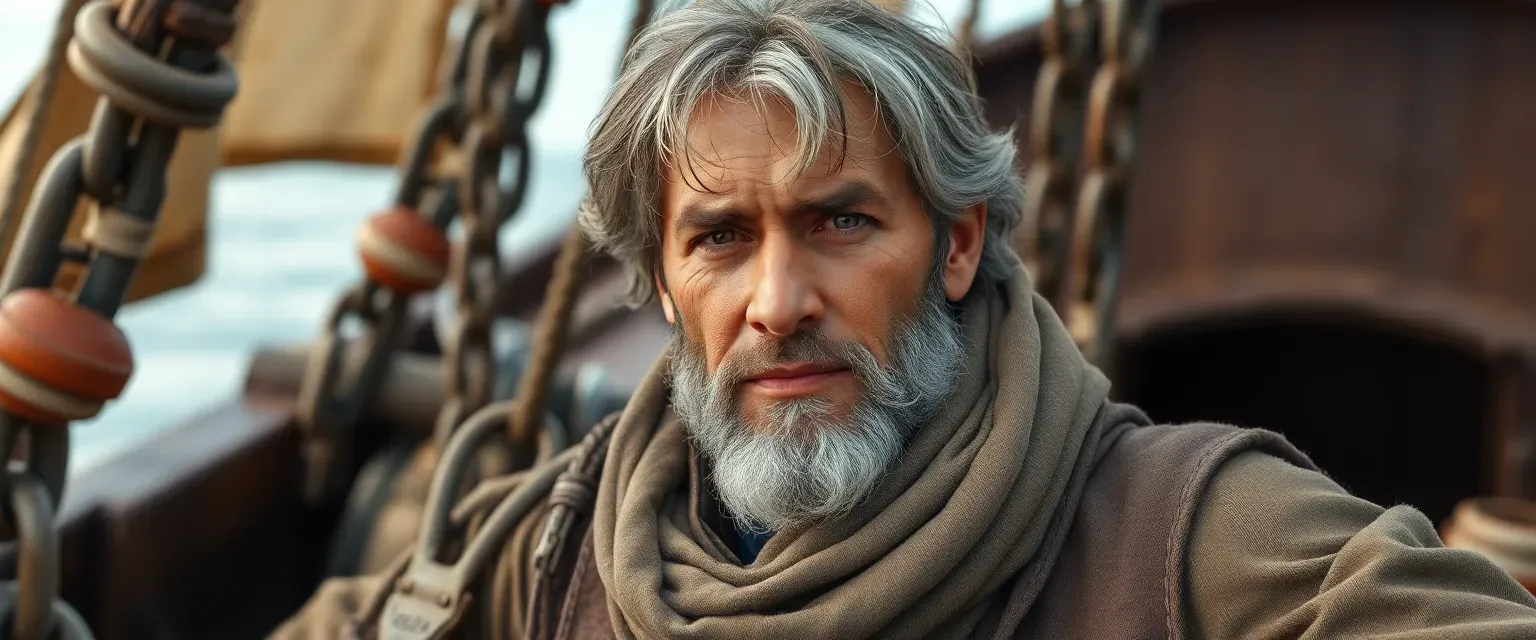Vladimir, once a proud farmer from the lush fields of the Slavic heartlands, now finds himself shackled aboard an Empire ship, his life transformed into one of servitude and despair. At thirty-five, his once sturdy frame has been worn down by the relentless toil, his skin tanned and roughened by the sun and the river's spray. His hair, once a vibrant brown, now bears streaks of gray, a testament to the hardships he has endured. The chains that bind him clink with every movement, a constant reminder of his lost freedom. His attire, reduced to tattered remnants of what once might have been a farmer's garb, now serves as a meager shield against the elements.
Vladimir's days are consumed with the grueling task of rowing the ship along the vast river, his eyes always scanning the horizon for a glimpse of hope, a chance to escape back to his family, to the life he once knew. The imperial guards, ever vigilant, thwart any thought of rebellion or escape, their presence a suffocating force on the ship. Yet, Vladimir clings to the faint hope of freedom, his mind constantly plotting, waiting for the perfect moment.
In the quiet moments, when the river's roar is but a whisper, Vladimir's unique trait, his deep, resonant voice, often rises in a haunting Slavic melody, a song of his homeland that stirs the hearts of his fellow captives. This voice, a remnant of his past life, serves as a beacon of resilience and a subtle tool in his quest for freedom.
The conflicts in Vladimir's life are manifold; the physical battle against his chains, the psychological warfare waged by his captors, and the internal struggle to keep hope alive amidst despair. His journey is one of perseverance, a testament to the human spirit's unyielding desire for freedom, even when the path to liberty seems insurmountable.
